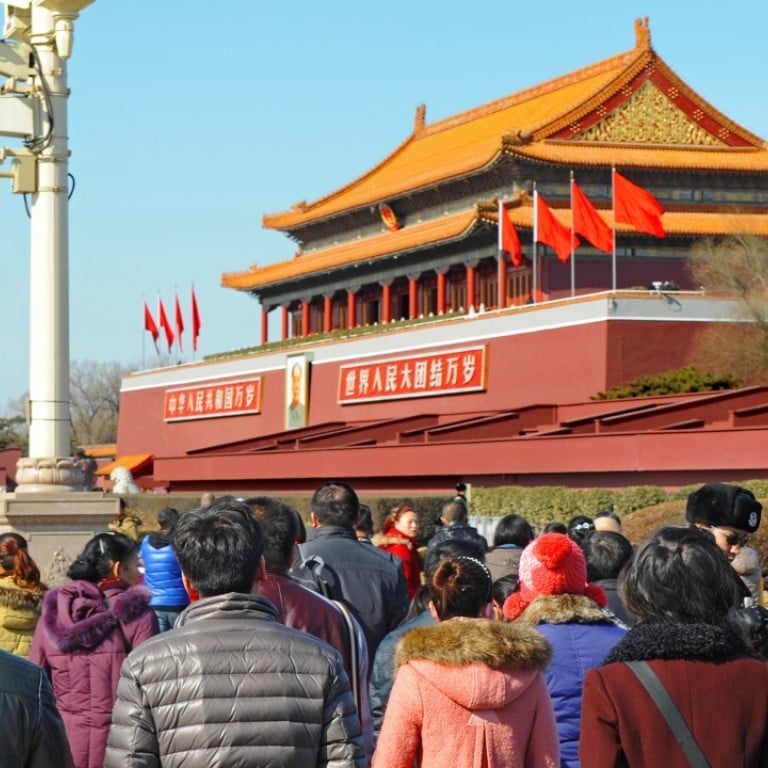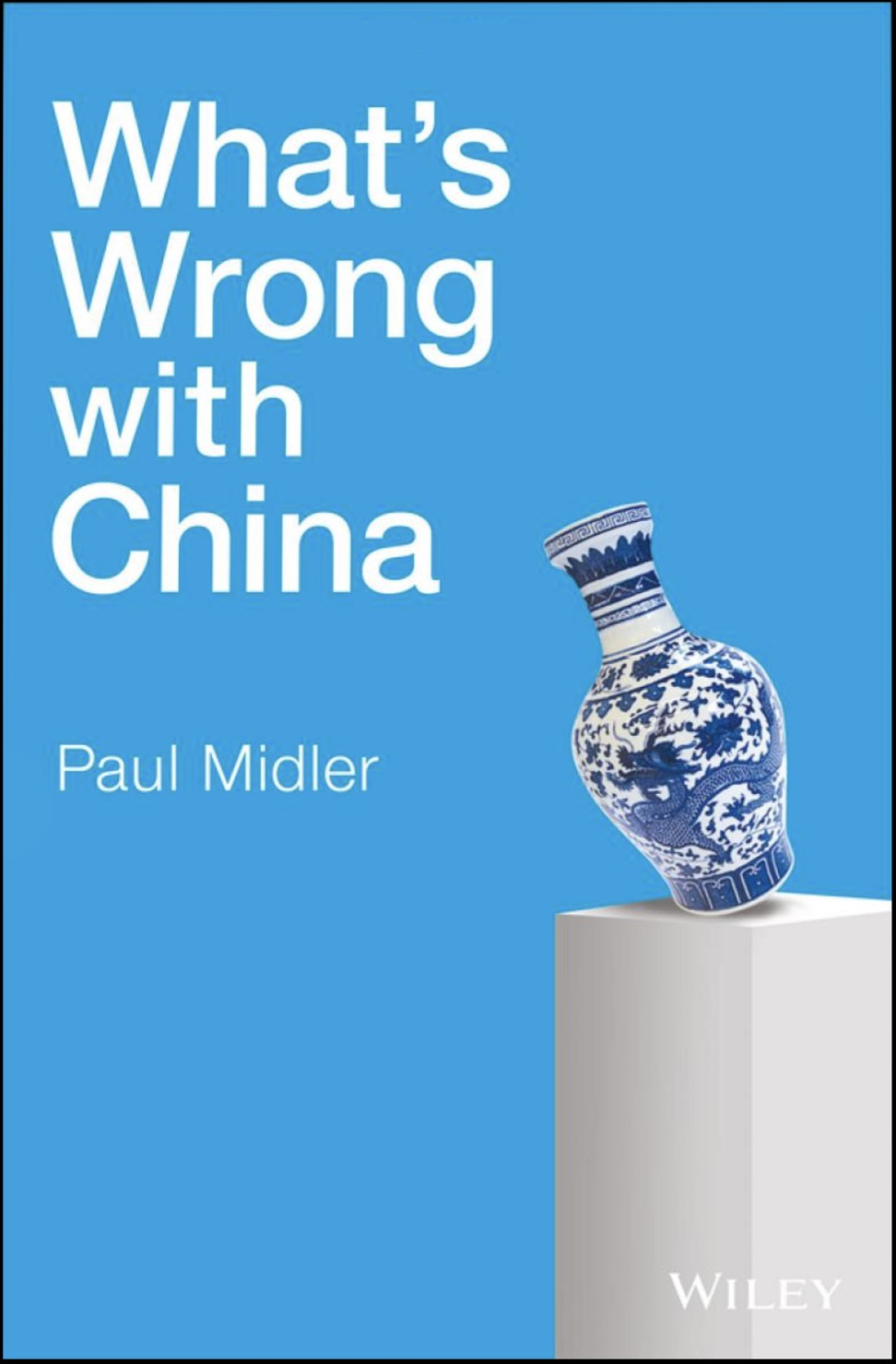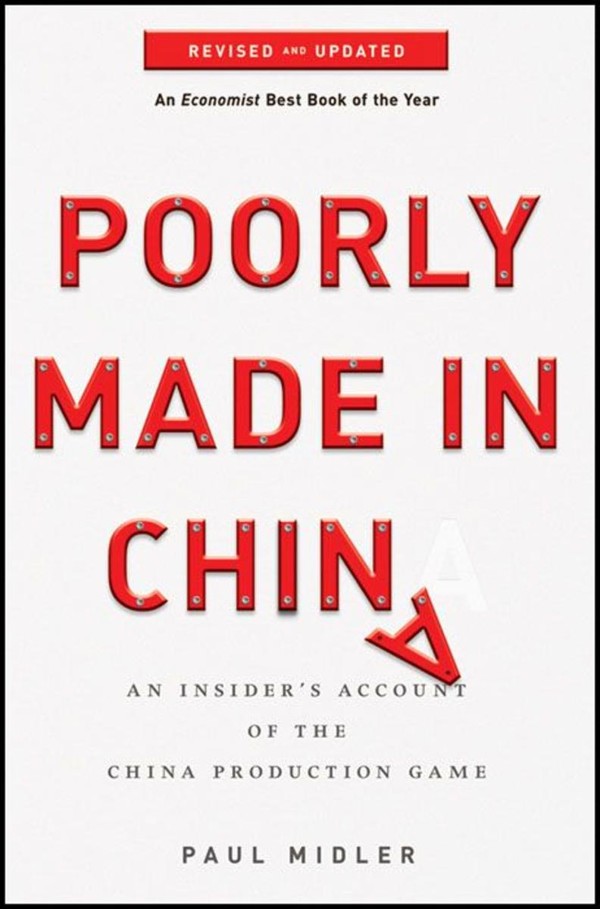
Book review: What’s Wrong with China – like an obnoxious expat’s drunken rant extended to a whole book
In what amounts to little more than a collection of anecdotes and personal opinions, author Paul Midler gleefully blames all of China’s problems on its people and culture, even claiming they were responsible for the opium wars
What’s Wrong with China
by Paul Midler
Wiley

Most criticism of China focuses on the Communist Party; in What’s Wrong with China, Paul Midler trumps that by going straight for the jugular and focusing on the people.
Midler, an American, is a long-term China resident, Mandarin speaker and the author of Poorly Made in China (2009), which described the way Chinese manufacturers gradually lower quality as a business strategy. He believes all the country’s problems predate the current regime and are rooted in its culture.
Book review: Black in China – tales of Chinese racism hint at Sino-African race relations, but fail to show the bigger picture
The book is largely a collection of anecdotes and randomly organised personal opinions, so his argument is pretty diffuse, but the thrust of it is that Chinese society is hampered by what he characterises as the culture’s informality.
That might well be true – but, given that Midler refuses to back up any of his arguments, it is hard to say. Instead of evidence, what we get is an incredible number of generalisations about the entire Chinese people; the book contains a million assertions and hardly a shred of evidence.
Midler certainly writes in a pleasant, lucid style, but what he writes is rarely either of those things. Yes, China has plenty of problems, and many of Midler’s anecdotes will ring true to anyone who has done business there. His diagnosis, though, amounts to little more than that the people and the place are rubbish.

Midler admits at the very start that he arrived in China deeply sceptical of its culture and traditions; indeed he characterises that as a virtue, crowing proudly that he “recognises certain failings in the local culture”.
“The fonder one becomes of the place and its people, the greater the risk of losing objectivity,” he writes, without seeming to realise that this cuts both ways.
He is positively gleeful in his desire to blame everything on Chinese people. At one point he even effectively suggests that the entire population are sociopaths. Within another two-page passage, he asserts that Chinese people were responsible for the opium wars – on the basis that they might have adulterated the opium and poisoned themselves, and because he has decided that opium addiction might not actually be all that harmful.
A three-page chapter on lying pretty much sums the book up: Midler asserts that the Chinese are habitual liars, quotes a few ancient foreign authors – purportedly as evidence, although it could just as easily be taken as evidence that certain prejudices do not change – backs it up with a smattering of weak personal anecdotes, and then generalises that into an entire population of 1.4 billion.
The erroneous belief that one’s nation is the best is derided as a specifically Chinese fault – something that is deeply ironic coming from an American
Midler also repeatedly mistakes universal traits for culturally specific ones; for someone who evidently prides himself on being tough, cynical and telling it like it is, he can be naive about human nature. He says, for example, that Chinese people don’t believe foreign aid comes without a price – in which they are right – and then tries to generalise this into an argument that there is no altruism in the country.
Similarly, he seems shocked that manipulation is regarded in China as part of human relationships, even though this is hardly a concept confined to the country. And, hilariously, he seems to think that maximising ways to get the most out of fast-food outlets is somehow revelatory of the culture, illustrated by a typically random anecdote about a young Chengdu woman’s trip to a Pizza Hut salad bar, which could have been a description of me during my teenage years.
Book review: Unrest – Singapore Literature Prize winner gets great English translation that’s well worth the wait
Part of the problem is that Americans are frequently his only point of comparison. He uses the nation as a contrasting locus of normality, without much consideration of whether it is Americans who are the deviation from the norm, or whether there is any norm at all. He certainly appears to sincerely believe that the West’s few-hundred-year blip of recent success is down to the inherent superiority of its culture, and not to exploitative empire-building buttressed by racism and backed by extreme violence.
We also hear about “this instinct of the Chinese, to make everything about themselves”, as if such behaviour is not universal. Likewise exceptionalism, the erroneous belief that one’s nation is the best, is derided as a specifically Chinese fault – something that is deeply ironic coming from an American.
Oh, and apparently Beijing is prepared to be friends with nasty countries within a “bilateral bubble”, giving North Korea and Iran as examples. This, of course, is known as international relations, and every country on Earth does it.
China’s history problem: how it’s censoring the past and denying academics access to archives
What’s Wrong with China can be a pretty depressing read. You find yourself wondering why Midler stays in China if he hates it as much as he seems to – but then he has evidently done rather well economically out of the country.
Midler works as a middleman for Western buyers, and he seems to extrapolate the character of all Chinese from Guangdong factory owners, which is a bit like extrapolating the character of all Americans from Donald Trump. What’s Wrong with China is like a drunken rant by a particularly obnoxious expat in a Beijing bar (one who is prepared to write sentences like “Drivers from the provinces are notoriously thick”), extended to the length of a book.

